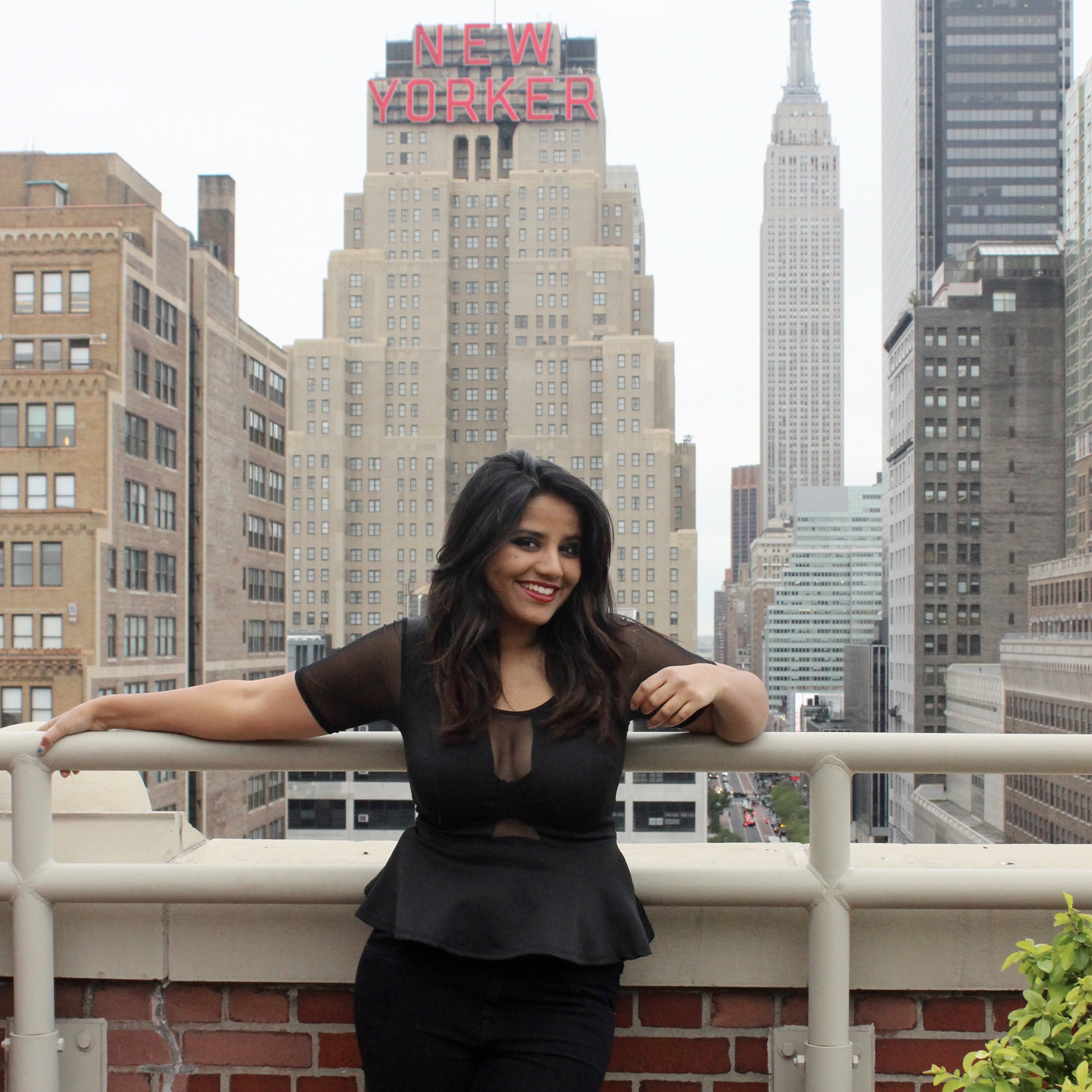
Writing for survival
by Madhuri Sathish
@MadhuriSathish
Maddy has spent many sleepless nights wondering whether her fellow journalists would one day wake up and realize objectivity is a myth. She has been the politics editor, photo editor and identities editor for NBN, as well as the resident Harry Potter expert in every space she has ever occupied.
Four years ago, I wrote a senior essay for my high school newspaper, and for the sake of journalistic accuracy, I recently went back and reread it. Some gems I stumbled across included: A Catcher in the Rye reference, an overarching claim about “societal disputes” and something about being trapped in a bubble. I thought I was leaving the bubble of my hometown to “step into the real world” — because at that point, I thought college was the real world — but the real world is a place where everything is burning. Ironic, isn’t it?
I’ve always wanted to be a writer. When I was five years old, I wrote short stories for my Indian classical dance teacher, and she told me I was brilliant. Writing was so simple then, and even as a high school journalist. I told stories because I wanted to tell stories, and there was never more to it than that.
But Medill — and Northwestern, more broadly — has been full of contradictions for me. As much as I would love to be “just a writer,” that’s not even a remote possibility. My identity as a woman of color informs every story I tell, even if it’s a story about a plastic bag ban in the French National Assembly (yes, that happened). And yet, so many of my journalism professors were quick to tell me that I was not being “objective,” or that I needed to tell “both sides” of the story.
As much as I can tell, journalism is supposed to be about speaking truth to power. It is therefore futile to ignore the roles our identities and our lived experiences play in our storytelling. These experiences manifest themselves in the sources I choose to contact, the quotes I choose to include, the stories I choose to tell. What does it mean to tell “both sides” of a story when one “side” is a marginalized population and the other is a system of oppression, or an institution with a lot of power? What does it mean to perpetuate the myth of objectivity, when such an aspiration to neutrality merely reaffirms a dangerous power dynamic between the oppressor and the oppressed?
This is why I said that everything is burning in the “real world.” It’s springtime, and lounging by the Lakefill can make it easy to forget that both within and outside the walls of this institution are numerous injustices. As a writer and activist, it is my responsibility to not forget. What does it mean for me to sit in a classroom learning about white fragility and intersectional feminism when Laquan McDonald is shot 16 times by a Chicago police officer and we don’t see the video for months? When ICE raids threaten undocumented folks in our community? When policy-makers are trying to prevent reproductive justice from becoming a reality?
It is a privilege to be able to forget, to be able to choose not to talk about injustice, to be able to not consciously think about the power dynamics at play in day-to-day interactions — to be able to walk away instead of applying everything you have learned to the fight for collective liberation. But for me, journalism has always been about rendering resistance visible, and about combating oppression in whatever form it takes.
So Northwestern continues to be full of contradictions for me. On the one hand, my desire to tell the stories of those who are marginalized is constantly suppressed. On the other, I have met so many incredible organizers here, for whom radical love is not just a concept but a reality. I’ve gone head to head with professors — and fellow students — who lend more credence to white male “objectivity” than my “agenda,” but I’ve also had the rare privilege of working with NBN to improve how student journalists cover marginalized communities.
I want to say that it is easy for me to sit here and rant about injustice, but it isn’t. None of us want to be out in the streets protesting during a Chicago winter. We do so because there is no choice. It is a matter of urgency that we respond to oppression when we see and experience it. In the same way, my mental health would probably prefer it if I paused every now and then to write about puppies. But I don’t think I can stop writing about the movements and the organizers that I care so much about, even if I do love puppies. Caring for myself is, as radical feminist and writer Audre Lorde said, an act of self-preservation and political warfare, but to take care of myself, I must also help my communities thrive.
I don’t know what the future holds for me, but I know that writing will be a part of it, just as I knew that when I was five years old. All I want is for my storytelling to be something that humanizes, respects and empowers those who generally never receive an opportunity to tell their stories in a way that affirms their agency as human beings. I can’t revolutionize journalism, but I can change how I treat people and dismantle my complicity in their oppression.
I fought this colonial institution every single moment I was here, and as a graduate, I can remind myself that I survived. That’s a pretty great first step for a storyteller.
